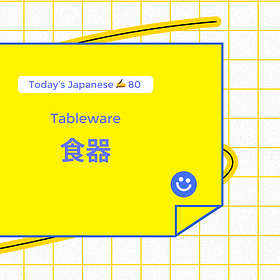面倒くさい Annoying / but more
こんにちは!How come we haven’t introduced one of the most useful words in Japanese yet? Whether you’re tired, lazy, or just not in the mood. This word pops up all the time in daily life. You’ll hear it from friends, in dramas, and even muttered under someone’s breath at work…And once you learn how to use it? You’ll find yourself saying it all the time. Let’s gooooo!🪐✨
面倒(めんどう)くさい
Something (or someone) that feels too bothersome, troublesome, or annoying to deal wit.h This word doesn’t just mean something is hard — it captures the emotional sense of “I just don’t feel like doing it” or “I can’t be bothered.
Example Sentence
A: 雨(あめ)降(ふ)ってるから買(か)い物(もの)行(い)くの面倒くさいな〜 Ugh, it’s raining… I really don’t feel like going shopping..
B: 家(いえ)にあるもので済(す)ませようか Wanna just make do with what we’ve got at home?
In casual conversation, 面倒くさい is often shortened to めんどい or just めんど.
Example Sentence
A: 来週(らいしゅう)までにまたレポート提出(ていしゅつ)だって〜 We have to turn in another report by next week…
B: えー昨日(きのう)出(だ)したばっかなのにーめんどー Ugh, seriously? We just turned one in yesterday…So annoying…
Also, native speakers usually don’t pronounce the “う” in めんどう clearly.it often sounds more like “めんどくさい” (mendokusai) or just “mendo” when said quickly. So don’t worry too much about the textbook-perfect pronunciation
Example Sentence
A: 自分(じぶん)のお兄(にい)ちゃん、トラブルばっかりでいつもめんどくさいけど、困(こま)った時(とき)に助(たす)けてくれるんだよね。 My older brother is always causing trouble and honestly such a pain, but… he’s there when I really need him.
B: いい兄弟(きょうだい)だね。 Sounds like a good brother to me.
🌟 Review Time! 🌟
Can you choose the correct word from last week’s lesson? 🤔✨
Deep bowl for rice/noodles with toppings
Which one fits best?
A. 湯呑み(ゆのみ)
B. 小皿(こざら)
C. 丼ぶり(どんぶり)
今週も読んでくれてありがとう!また来週✌️!
Thanks for reading this newsletter! See you next week ✌️!
食器 Tableware
こんにちは!What’s the first thing that pops into your mind when you think of Japanese food? Sushi? Ramen? Something sweet, maybe? Just like there are many kinds of Japanese food, there are also many ways to refer to the plates, bowls, and cups used to serve them! Learning these everyday words for Japanese tableware can help you sound much more natural when t…
Thanks for reading FusenClub! Subscribe for free to receive new posts and support us🫶








